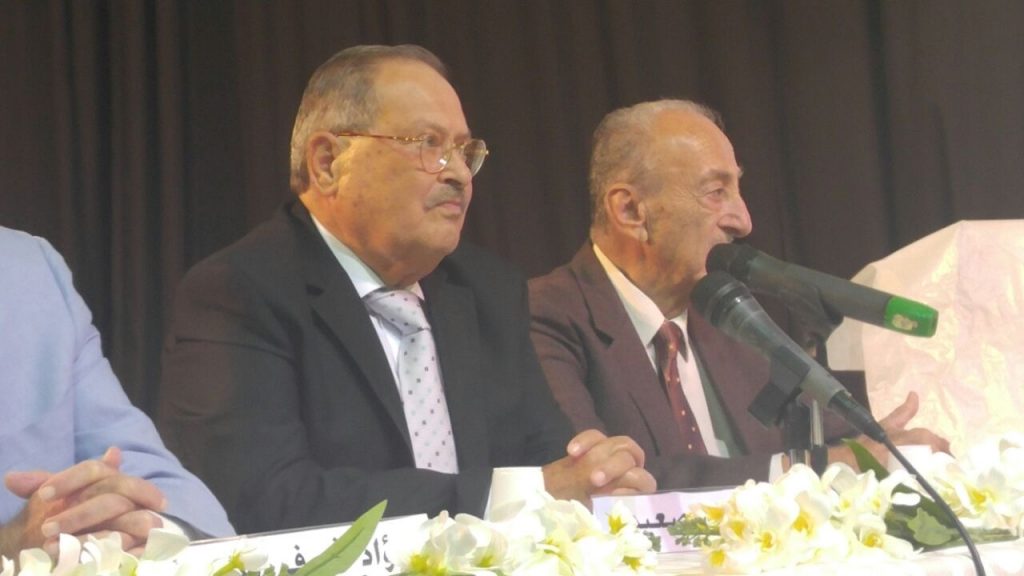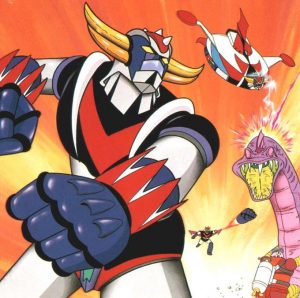
- ARAB NEWS
- 13 Jul 2025

Amin Abbas
Japanese anime has gained growing popularity globally, especially in the Middle East for over 40 years, it gained popularity at the beginning of the 1970’s when TV boomed and has continued up until the present day.
Wiam Al Saidi, a Lebanese film director and producer who is considered a pioneering director of dubbing Arabic animes in the Middle East like classic anime series such as: Arabian Nights, Sinbad’s Adventures, Maya the Honey Bee, Astroganger, Manga Sarutobi Sasuke, UFO Robot Grendizer and others.
Speaking exclusively to Arab News Japan, Al Saidi said he started directing Arabic dubs of anime and cartoons from the mid 1970’s.
“The Arabic dub of Japanese anime and English cartoons was a new kind project for TV in Lebanon in the early 1970’s which I was so encouraged and passionate to do it, The early projects we worked on such as Sinbad’s Adventures, Maya the Honey Bee, Astroganger and specially UFO Robot Grendizer which was the main attraction of kids and people of all ages who wants to attach themselves to a heroic character similar to the great Arabic leaders of the past like Jamal Abdul Naser,” he said.
“Grendizer was the kind of hero that protects the innocent and weak people against the evil,” he stressed how characters as such share a noble message of the importance of protecting the earth and life in general.
Al Saidi was among the first people who worked on the Arabic dubs of Japanese anime which was a new and unique project at that time, he said: ”The concept of spreading and sharing information and knowledge about different cultures around the world was limited to TV, radio, newspapers and prints at that time comparing to the fast and widespread information sharing in the new era of the internet and other” advanced technologies especially for kids.
He continued by highlighting how: “Japan was a new culture for us and that’s why we wanted to share about the foreign cultures like Japanese culture to the Middle East region in an interactive and simple way” to engage children.
“The first step in the process of the Arabic dub for anime series was the translation from the Japanese language to Arabic language and we had at that time expert translators who had a big knowledge of Japanese language and amazing Arabic which helped us a lot for doing the scripts of the dialogues for those series,” he told Arab News Japan.
Dubbing shows in Arabic then was exhausting and took too much time to finish in comparison to today, he said.
“We were doing the recording of the voices after finishing the translation and dialogues drafting on 16 mm tapes,” he added that the voiceovers were typically performed by talented actors like Wahid Jalal, Jihad Al Atrash, Alvira Younis, and Samira Al Baroudi
“The actors were all sitting in one room with multiple microphones” and they “were recording according to their roles and timing in the scenes, if one of them made a mistake then we have to start recording all over again and that’s why the recording sessions for one episode were taking between 9 – 10 hours for each episode,” he shared.
Following that, the recordings would have to be synchronized with the scenes, background music, and sound effects and would take approximately 3 to 4 days to complete, he said.
Arabic dubbed, Japanese animes were very in demand, so much so that Arabic TV stations (which were very limited in the late 1970’s) were asking for these shows to be broadcasted on their TV channels.
The anime series dubbed in Arabic acquired a huge following, and fans, particularly children would promote the shows by wearing branded merchandise of their favorite characters. Additionally, newspapers were also providing ample coverage of the shows, according to Al Saidi.
Regarding the differences between Arabic dubbing for anime series and cartoons over time, Al Saidi said: “The old shows were featuring important and valuable lessons about friendship, protecting the innocents and fighting the evil” that proved beneficial for children.
He also stressed how they intended to use the Arabic language in interactive ways to provide a meaningful experience for the Arabic audiences.
This year marks the 45th anniversary of UFO Robot Grendizer since its first initial broadcast in Japan. The series was considered one of the most popular Arabic dubbed, Japanese anime series as it had a huge fanbase around the Middle East region.

Al Saidi shared the story of how the Grendizer was brought to the Middle East with Arab News Japan.
He said: “The late Nicolas Abu Samah was a dear friend of mine and he was the first person to bring Japanese anime to the Middle East region.”
Abu Samah established his company (FILMALI) in the mid 70’s, recognized as the first dubbing company in the Middle East. Abu Samah was aware of Saidi’s passion for children shows and thus handed over the project of directing the Arabic dubbing of these classic Japanese animes, including UFO Robot Grendzer.
Saidi also stressed how Grendizer made a huge impact around the Middle East region because it features heroism, courage, and excitement as well the values of patriotism, all of which appeal to the masses.

About his reaction of being part of the success for Grendizer Al Saidi said: “I’m very pleased and proud to be the first who worked on directing the Arabic dub of many classic Japanese anime series specially Grendizer which made everyone from young kids to adults very happy and excited about it as it was a new kind of entertainment” for audiences in the Middle East region, he said.
Sharing a word of advice for others who have an interest in directing dubbed shows, Saidi shared how it is important to maintain awareness over the ethical responsibilities that come with entertainment, and strive to educate future generations. He continued by underlining how characters should also be constructed to make a lasting impression on audiences.